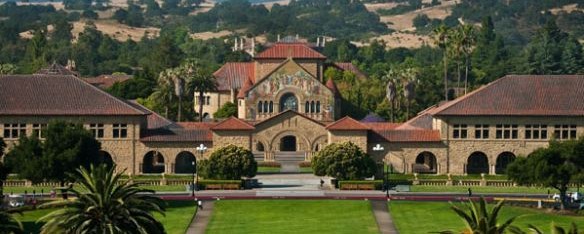The Course
This crash course is designed to explore several factors that stimulate and inhibit creativity in individuals, teams, and organizations. In each session we will focus on a different variable related to creativity, such as framing problems, challenging assumptions, and creative teams.
The course is highly experiential, requiring each student to participate actively, taking on weekly projects. Each Wednesday a new challenge will be presented, and the results are due the following Tuesday. Some of the challenges will be completed individually, and some will be done in teams. There will be a two-week project toward the end of the course that will allow you to use all the tools you have learned.
To foster collaboration and learning between the students, we will craft teams for each assignment. Each project will be done with a different team, so students get a chance to work with a wide variety of participants. All submissions will be viewed and evaluated by the course participants. There will also be a course Twitter feed and Facebook page, and several scheduled Google Hangouts that will enable active discussions on specific topics.
Recommended textbook:
inGenius: A Crash Course on Creativity by Tina Seelig
Schedule:
The course runs from Wed, Oct 17 – Friday, Dec 7, 2012. New lectures will be posted on Wednesdays, and assignments are due the following Tuesday.
Workload:
Expect to spend between 1 – 5 hours a week on the course.
Technical Requirements:
You need a computer that allows you to watch the video lectures, and the ability to upload your assignments, which will be images, videos, slides, and text. You will also be required to collaborate with teammates via email, skype, and other free online tools.
Prerequisites:
This is an introductory course designed for anyone, anywhere in the world. There are no prerequisites. It would be helpful to have basic skills taking digital photos, creating slide, presentations, and creating short videos for your homework submissions.
Course Content:
The course is designed to introduce you to a set of tools for generating new ideas individually and as part of a team, including opportunity identification, reframing problems, connecting and combining ideas, and challenging assumptions. We will also discuss team dynamics, creative communication, and cultures that support creative problem solving.
Team Projects:
There are several short team projects in the course. You can bring your own team or we will create one for you.
Evaluation:
Because this course focuses on creativity, evaluation of the projects is necessarily subjective. Our goal is to make sure that you get thoughtful feedback on your submissions and to showcase the most creative solutions for each challenge. To do this, the entire class will be involved in providing feedback on the assignments. The more projects you review, the more feedback you receive on your project. Also, you will be getting guidance and feedback on your evaluations in order to make sure they are as accurate and constructive as possible. The projects that are the most highly rated will be showcased on the course home page.
The Instructor
Tina Seelig is the Executive Director for the Stanford Technology Ventures Program (STVP), the entrepreneurship center at Stanford University’s School of Engineering, and the Director of the National Center for Engineering Pathways to Innovation (Epicenter). She teaches courses on creativity, innovation, and entrepreneurship in the department of Management Science and Engineering, and within the Hasso Plattner Institute of Design at Stanford (d.school).
Tina was awarded the 2009 Gordon Prize from the National Academy of Engineering, recognizing her as a national leader in engineering education. She also received the 2008 National Olympus Innovation Award, and the 2005 Stanford Tau Beta Pi Award for Excellence in Undergraduate Teaching.
Tina earned her Ph.D. from Stanford University Medical School where she studied Neuroscience. She has worked as a management consultant, as a multimedia producer, and was the founder of a multimedia company. She has also written 16 popular science books and educational games. Her books include The Epicurean Laboratory and Incredible Edible Science, published by Scientific American; and a series of twelve games called Games for Your Brain, published by Chronicle Books. Her newest books, published by HarperCollins, are What I Wish I Knew When I Was 20, and inGenius: A Crash Course on Creativity













